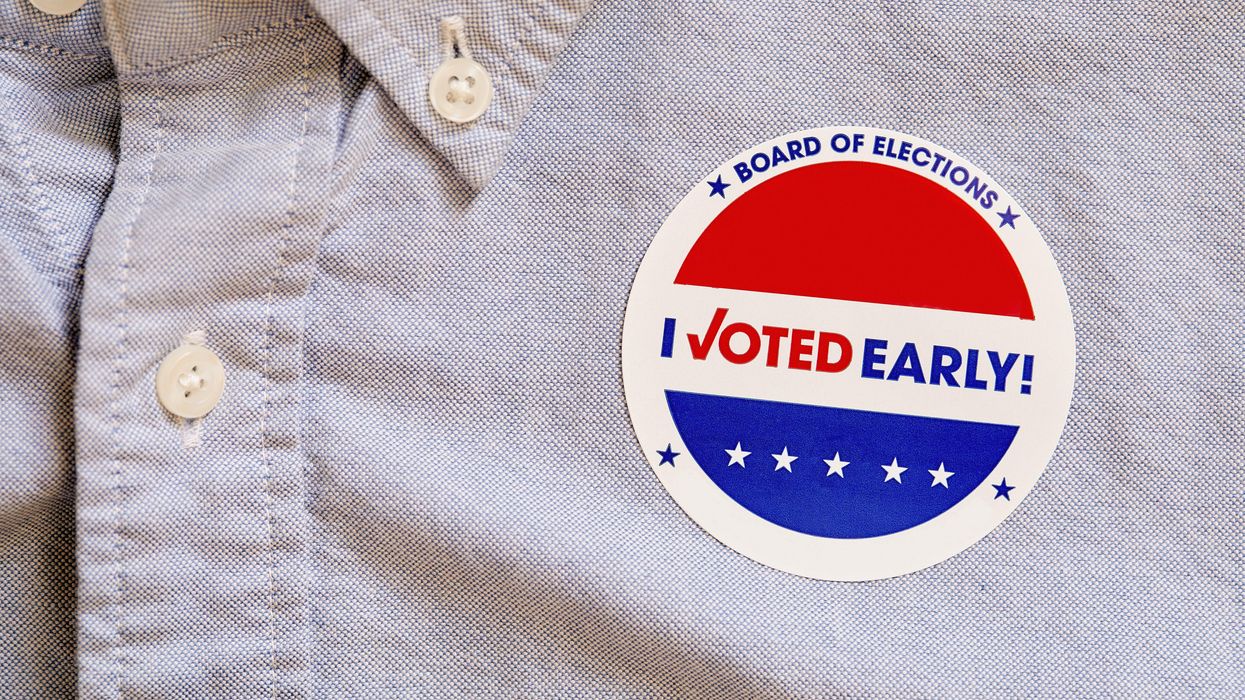Hovland is a commissioner on the U.S. Election Assistance Commission. Toulouse Oliver, a Democrat, is New Mexico's secretary of state. Fitzpatrick, a Democrat, is clerk and recorder for Boulder County, Colo. Hatch, a Republican, is clerk and auditor for Weber County, Utah.
In a handful of days, Americans will decide who will be elected to lead our nation, states and communities by casting their ballots in the midterm election. Republicans, Democrats and independents are all eager to cast their ballots.
Research from ABC News and The Washington Post finds a whopping 66 percent of Americans consider voting in this year’s midterm election more important than voting in previous midterm cycles. But even with sky-high enthusiasm, we election administrators still see far too many people miss out on their opportunity to cast a ballot because of last-minute challenges on Election Day.
In the final hours of voting, Americans can face unanticipated barriers that may keep them from casting their ballot. Challenges include long lines, hectic schedules, illness, last-minute child care or work issues, traffic jams, changing election laws, voter disinformation, and myriad other obstacles. We’ve all run into these issues in our lives, and have seen even the best-laid plans fall apart when problems arise.
Fortunately there is an easy solution: Vote early.
When you vote early by mail or in person, nothing can stop you from having your say. When people vote ahead of Election Day, they have the convenience of finding a date and time that works for their schedule. The lines may be substantially shorter, which means you can get in, get out and get on with your day. And if you run into an issue like not having the right ID or showing up to the wrong polling place, you have plenty of time to correct the issue and cast your ballot.
For all of these reasons, we are celebrating Vote Early Day today. Launched in 2020, Vote Early Day is a nonpartisan holiday dedicated to ensuring all Americans have the tools and information they need to vote early. Built in the same model as other civic holidays like National Voter Registration Day, it culminates in a tentpole moment: a shared day to celebrate our democracy by helping others participate in it. On Vote Early Day, over 2,500 businesses, nonprofits, campus groups, civic organizations and election administrators host local celebrations in all 50 states, turning out their communities to vote early by the millions.
The success of this holiday is built on the idea that the work of empowering voters is a task no single group can or should do alone. Through a broad, diverse set of partners, Vote Early Day has the ability to meet people where they are with the information they need to vote in advance of Election Day. Yes, election administrators like us play a critical role in that work, but we also need businesses, educators, nonprofits, faith communities, student groups, media companies, athletes, celebrities and more. Each group has the unique ability to build a celebration that meets the needs of their communities, customers or constituents.
With politics seen as negative and toxically partisan by so many people we encounter, Vote Early Day events mark a fun and joyful opportunity to lower the barrier for entry into our democracy. Through the work of organizations celebrating the holiday, we not only amplify the benefits of voting early, but also empower people to take advantage of their options to make their voices heard.
As election administrators, we benefit from Vote Early Day too. With Americans voting across multiple days, as opposed to one single day in November, we have a more manageable number of ballots to process each day. It also provides us with a day to educate voters about how our democratic republic works and the steps election administrators take to keep our elections accessible, secure, and transparent.
Upholding the integrity of elections and making sure voting is secure and accessible for all eligible voters is paramount to our work. After all, getting people to vote early, in the words of former Wayne County, N.C., Board of Elections Director Rosemary Blizzard, “helps to make sure that everyone who is entitled to a ballot gets a ballot.”
With more than half of states seeing changes to their election laws since the 2020 election, Vote Early Day provides us an important opportunity to overcome confusion and delays at the polls. By celebrating Vote Early Day, we can share nonpartisan, up-to-date voter information that stops political disinformation in its tracks. When people vote early, they have the time and opportunities to navigate anything that comes their way.
In 2018, more than 39 million voters cast their ballot before Election Day. In 2020, that number rose to over 101 million. This fall, more than 220 million Americans are eligible to cast their ballots ahead of Election Day. We have a chance to make voting early the norm and not just a short-lived, pandemic-induced trend. Together, we can change the narrative about voting and make Election Day the last day to vote. So as this election draws to a close, we hope you will vote early, as your opportunity to join millions of people in casting your ballot ahead of Election Day. Why wait?



















Trump & Hegseth gave Mark Kelly a huge 2028 gift